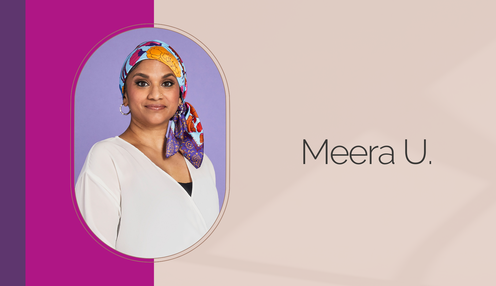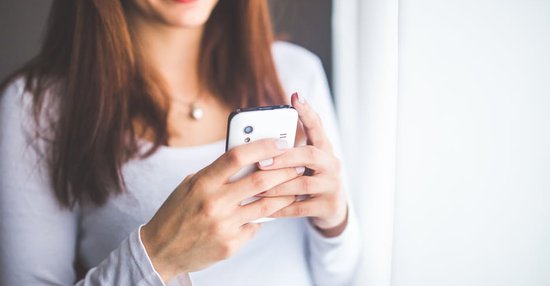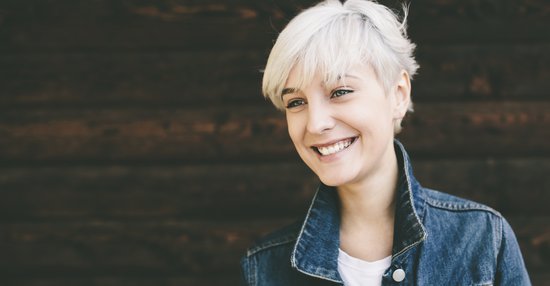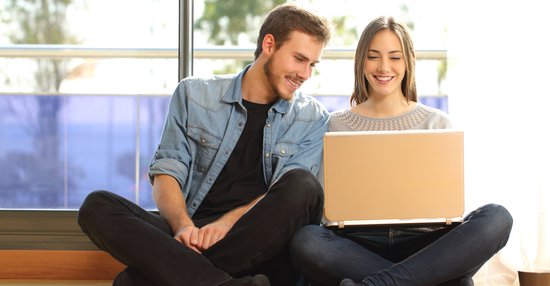As a pediatrician, I’m used to being on one side of the patient-doctor relationship. I’m normally the one diagnosing, treating, and providing care and reassurance – not the one receiving a life-changing diagnosis, discovering firsthand just how brutal chemotherapy really is, and worrying about my future. I’m usually the one wearing a white coat, not a hospital gown. Being a doctor is challenging – but it’s an infinitely more comfortable and gratifying position to be in than being a cancer patient. Switching from a caregiving role to a care-receiving role turned my whole world upside down.
I first figured out that something was wrong during a self-exam. I reached out to my family doctor and we did my very first mammogram. It came back positive. Receiving my cancer diagnosis and absorbing the information was hard. I’m so used to patient care, to being in the third person, and to applying things to other people. It has been incredibly difficult for me to learn to apply it to myself. Once I was diagnosed, things started moving quickly – a biopsy, several scans, my surgery booking. I felt like I didn’t have time to process all the information. And after the surgery, I jumped right into chemotherapy and radiation.
Doctors will tell you what to expect from chemo, but it’s impossible to really grasp until you’ve experienced it yourself. I had almost all the side effects and complications – lots of nausea, vomiting, fatigue, overall weakness, dehydration, anemia, mouth sores, bowel changes, thrush, and loss of taste. I lost a lot of weight, lost my hair, and my nails turned black. I found that everything was very loud – I couldn’t be in the same room as my husband when he was watching TV, I needed the volume to be very low and he said he couldn’t hear anything. I also ended up with peripheral neuropathy – numbness and pain in my hands and feet – and a lot of itching. The peripheral neuropathy was so severe that we had to make the decision to discontinue chemotherapy.
The radiation that followed was challenging too, in its own way. It was so tiring. To have to go into the hospital every single day, Monday through Friday, even if it’s for a short treatment, felt like a lot. My system was already weak from the chemo and even stuff like figuring out parking at the hospital was taxing. I had to just take things one day at a time. I didn’t plan for next week or next month or even tomorrow – I just focused on making it through the day.
When we’re in the doctor’s seat, we give patients diagnoses and explain side effects, but going through it all ourselves gives us a much more intimate and nuanced understanding. I didn’t realize, for example, that for almost a month after my radiation treatment was finished, the skin in the treated area would continue to worsen. I’m a person of colour so the skin became somewhat charred almost, and then started to peel. The whole area was very tender. And now, even though all of that is over, the skin is still very sensitive to sunlight and heat.
Being a patient gave me a new perspective and I came to see myself in a new way – quite literally, actually, because when I looked in the mirror, it felt like a complete stranger was looking back at me. I lost my hair not just on my head but also my eyebrows and my eyelashes. My perception of my identity completed changed. My five-year-old daughter didn’t like to see me without a hairpiece on. She would say, “You don’t look like my mommy.” That was hard. And now that treatment is over, I’m still a whole new me. I’ll never be the person that I was before I was diagnosed. Even being a doctor myself, I don’t think anything could have prepared me for this journey.



